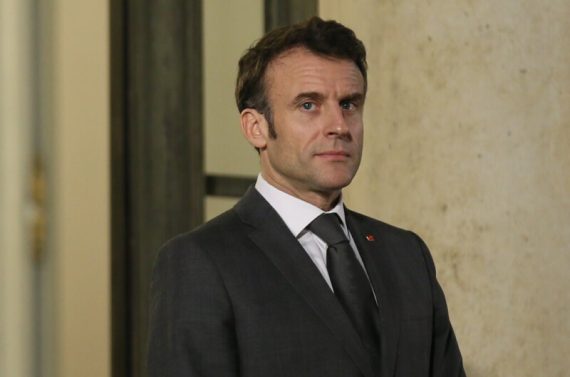F
rench President Emmanuel Macron recently completed a five-day trip to Africa, visiting Gabon, the Democratic Republic of the Congo, the Republic of the Congo, and Angola on March 1-5. Macron’s trip to Africa excluded several countries in the Sahel region, including Burkina Faso, Mali, and Niger, where there is significant tension with France.
Macron faced by criticism and protests
French President Emmanuel Macron’s recent trip to Africa aimed to deepen cultural connections and the exchange of ideas between France and African countries. He promised to end the “Françafrique” policy, which has long been criticized for enabling French political and economic influence in Africa.
His recent visit to Africa was met with criticism from numerous regional political analysts, who argued that his promises lacked new substance and were simply a repackaging of previous pledges. Many have expressed disappointment that Macron did not offer concrete plans or policy changes to address the complex issues facing the continent.
African political analyst Amir Nourdine Elbachir pointed out that Western nations are still discussing plans for Africa without involving Africans, suggesting that Macron’s new policy for Africa was prompted by threats to French interests in the continent.
Meanwhile, President of the Democratic Republic of the Congo Félix Tshisekedi urged Macron to treat African nations as equal partners. Tshisekedi’s statement was made during a press conference with Macron held in Kinshasa on Saturday, March 4, 2023.
Tshisekedi called for France to change its “protectionist” attitude towards African countries, adding that France needs to see African countries as partners rather than in a paternal relationship.
The critiques suggest that while Macron’s new policies may be a step in the right direction, they may not go far enough in addressing the root issues of French interference and neocolonialism in Africa.
Despite Macron’s promises to end “Françafrique,” the French practice of maintaining economic and political influence over its former African colonies, Macron faced criticism and protests throughout his trip.
Lingering colonial legacy
France’s history of colonialism in Africa has left a legacy of resentment and distrust towards the West. Many African nations feel that their resources have been exploited and they have been left to deal with the aftermath of the colonial era leading to a deep and ongoing mistrust toward Western countries, and primarily Europe.
As competition for influence in Africa grows more intense, African nations are increasingly seeking partners who prioritize African interests and treat them as equal rather than viewing them as pawns in a neocolonial game.
Protests erupted during Macron’s visit to Gabon, where some demonstrators held placards stating “France get out.” The country’s opposition leader Jean Ping accused France of having a “neocolonial attitude” towards Gabon.
China and Russia on the rise
In recent years, China and Russia have expanded their presence in Africa, raising the concerns of European countries and the United States.
An interesting video circulated on social media showing some of the protestors who were chanting slogans against Emmanuel Macron’s planned visit to the Democratic Republic of the Congo carrying Russian flags in their hands. The protest highlights the growing influence of Russia and China in Africa.
China’s economic policies in Africa focus on extracting natural resources, expanding the Chinese consumer market, and ensuring economic and political stability. Through President Xi Jinping’s Belt and Road Initiative, China has expanded its economic cooperation with various African countries.
On the other hand, Russia’s approach to Africa involves business opportunities, arms sales in exchange for diplomatic support for Russia’s foreign policy preferences, political support for authoritarian leaders, and security cooperations. Russia’s relative popularity in the Global South has disappointed Western observers, and its attraction strategy has been fueled by the “memory diplomacy” approach whereby it highlights positive historical narratives such as its lack of involvement in the slave trade in Africa or colonialism in the region, and its role in supporting African countries during their struggle for independence.
In contrast, the European Union is trying to establish a broad political and economic relationship with African countries based on trade, investment, aid, and technical support, aiming to achieve better control over irregular migration.
Recommended
The changing dynamics of Africa
African countries increasingly seek to assert their independence and pursue their own economic and political agenda.
The rise of China and Russia in Africa poses a challenge for the United States and EU countries by adding another layer to international African politics. They now have to re-adjust their approaches to engage with African countries, taking into consideration their expectations and diplomatic needs.
The ongoing resentment towards the West in Africa highlights the need for a more equal and respectful relationship, one that both acknowledges the ongoing impact of Western colonialism and aims to help Africa address the root causes of poverty and instability.





